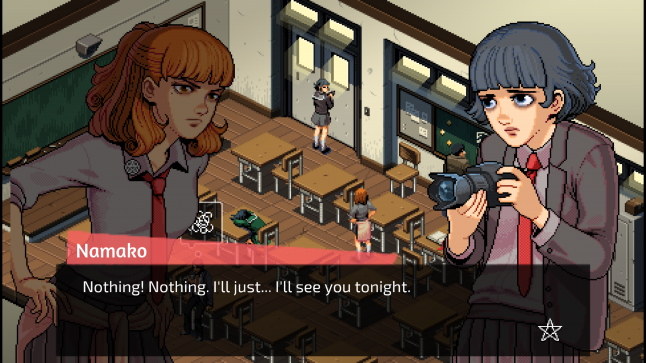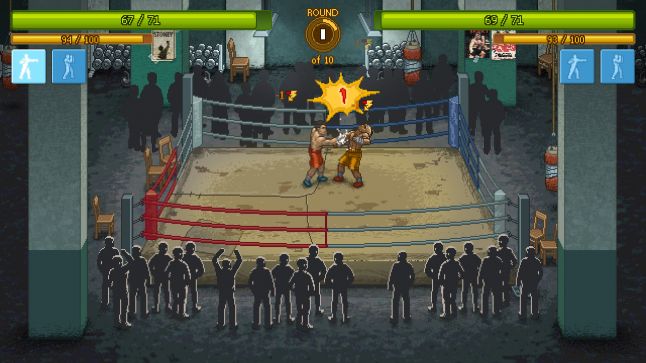An indie developer needs a publisher like an umbrella fish. Or is it still not? Brandon Sheffield, head of the indie studio Necrosoft Games, shared his opinion on the issue.
Over the past four decades, the role of publishers in the gaming industry has changed dramatically. At first, the industry was only developing (the 80s), then it became clear that publishers were absolutely necessary (the 90s), then that they were almost useless (the indie boom in the mid and late 2000s), and finally, the situation came to the interesting intermediate position in which it is now. Five years ago, I would have said that publishers are needed only to give money and then get out on all fours. Now, if we are talking about indie, I think that either they are not good for that, or they are very important. It all depends on what type of publisher we are talking about.
Who needs them? (Almost everyone, but only from time to time)
I’m constantly trying to sell a game or two to different publishers. We at Necrosoft Games are always looking for where to get money, how to advertise ourselves better and stuff like that in the same spirit. This is usually expected from publishers.
But as soon as it really comes to the point, there is no benefit from most publishers, except for money for development. And if they can only give money, and that’s it, then why do they need it at all? If you manage to launch the game with the help of crowdfunding or at your own expense, then most publishers will not bring you much benefit.
The problem of marketing
Selling the game is more difficult than ever. The audience is no longer the same as in the days of Sega Genesis. If you had this particular console, then your grandma could go and buy you a new Batman game, because she knew that you liked the movie and that you had a console. In such an environment, traditional publishers like Acclaim flourished. They paid the developer for the game and knew that they could sell it, because it was clear where the buyers were and what they would like.
More games are being published now than at any time in the history of the industry. It is unlikely that your grandmother knows how to give you a code on Steam. And she certainly does not know what kind of game you would like as a gift, because the advertising of this game does not hang in the “Children’s World”. And it’s not even about the publishers. Most game developers have not even heard about half of those games that have gained popularity on Steam without much fuss and bring millions to their creators (Have you heard about Verdun? The circulation is 500 thousand, each copy is $ 25. I didn’t even know about such a game until my programmer told me).
There are very few publishers who solve this problem with innovative marketing approaches. Companies like tinyBuild or Devolver have connected streamers, YouTubers and all sorts of cool gadgets from social networks to raise the hype around the game even before the launch. And it actually works.
But most publishers send out regular press releases as a marketing move, post a couple of trailers on social networks and put up a booth with a banner at the exhibition. This approach stopped working a long time ago. For example, my friends exhibited their games at a dozen different exhibitions – from PAX to E3. This did not affect sales in any way. Why? Yes, because they didn’t do anything else. Just publishing press releases and visiting exhibitions will not sell the game. So you can get into the eyes of some YouTube star, but for this you still have to take and send information about the game yourself, and not hope for a happy accident. It is necessary to approach the promotion of the game from different sides, and most publishers simply do not have this experience. They adhere to outdated schemes.
But even if a publisher does not know how to think in a new way, he can still become useful if he has a well-established audience. Let’s say your game is a JRPG. Then you need to go to Atlus, Square Enix or XSEED. If you have a harsh action, then Devolver may be suitable. Even if the publisher’s label is just a screensaver, it will already be possible to increase sales, since they have their own user base that is actively looking for exactly the games that you are developing. In this case, it does not matter whether the game is promoted through aggressive marketing or not, because the user base is already waiting for a certain genre of games from these publishers. (Although if you give the game to Devolver, you will kill two birds with one stone: this publisher promotes both).
If your game looks something like this, then the right choice is a JRPG publisher (by the way, this is our new secret project).
There is another, more common, sort of publishers. They were mentioned just above. These publishers give you some money, then deduct from the income what they are owed plus a percentage of the proceeds, and do not help to promote the game at all. Unfortunately, there are now most of them. As a rule, they do not have any special profile (such as Atlus). Such publishers keep afloat thanks to large tiles, and indies are used as guinea pigs. They invest in them in the hope that they will become a hit – well, if not, they will not try to save them, but simply score.
Efforts to promote the game need to be made constantly – and after the launch, too. If the publisher does not do this or does not want to do it, then the only benefit he can bring is to give you exactly as much money as you need to make the game. Let’s be honest: this is not enough. Sales from your project should help you hold out until you sign another contract. And ideally, you should have enough to launch the next game.
If you’re trying to find a publisher, and you only find such, then it’s probably better to run the game yourself. Then at least you will have all the money earned by the project. Take off or sink – all thanks to your own efforts. Necrosoft has come to the conclusion that we are better at promoting our own games than most publishers. Not nearly as cool as good publishers, but… there aren’t that many good ones. So if none of them are interested in us, it’s easier not to bother at all and do everything yourself.
So how do you distinguish these very good publishers from all the others? That’s what we’ve come to.
1. Have you heard of them? If so, ask what their user audience looks like. If everything is clear with the audience, and your games are suitable for them, then this publisher may be suitable for you.
2. Read what their employees write about marketing, publishing and all that. Are they trying new approaches? The very fact that they write about marketing is already a good sign. But it would be nice to study specific cases. If they are interesting (like tinyBuild with Punch Club), then it is possible that they are not bad.
3. Do they have a good reputation? Ask your friends if they work well with them. It is important.
Well, besides, listen to your intuition!
Thanks to the correct promotion on Twitch, the Punch Club circulation amounted to more than 330 thousand
Of course, finding money for development is very important. Sometimes you just need cash. So if you decide to contact the publisher who will sponsor the creation of the game, and then merge, then do not forget that marketing will remain on you. You will have to contact the streamers yourself, come up with a promotion plan, organize meetings with the press, compose funny tweets and everything like that. No one likes to do this, but someone has to do it. And it may happen that the publisher will not.
Source: Gamasutra



